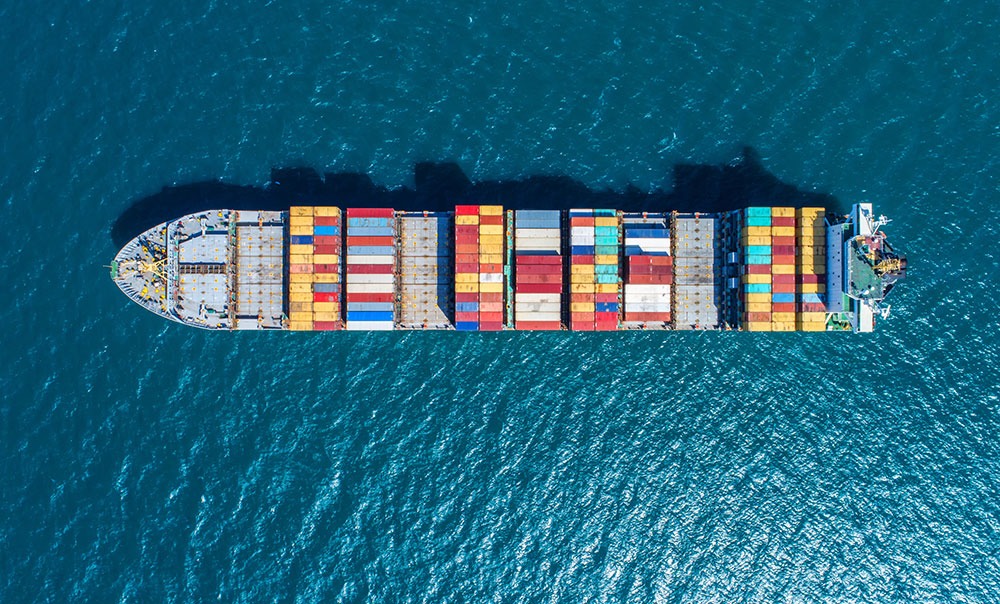The maritime industry has no time to waste if it is to meet the International Maritime Organization’s ambition of at least halving emissions from international shipping by 2050.
It will require commercially viable zero-emission vessels to be operating along deep sea trade routes by 2030. This is the goal of the Getting to Zero Coalition, which brings together more than 120 companies within the maritime, energy, infrastructure and finance sectors, supported by key governments and IGOs.
Produced by the Energy Transitions Commission for the Getting to Zero Coalition, a new report catalogues the barriers to the early adoption of zero-emission technologies throughout the entire energy value chain. More importantly, it calls attention to five key actions that first movers can take to make tangible progress towards zero-emission pilots over the next three to four years:
- Join forces to fast-track technology trials and regulatory approvals
- Choose pilot locations that offer privileged access to low-cost renewable electricity
- Seize opportunities to repurpose and retrofit existing infrastructure and assets
- Co-invest in critical equipment such as bunkering assets and vessels
- Form consortiums with key value chain actors to establish voluntary offtake agreements and distribute cost across the value chain to the end-consumer
Renewable electricity for the production of green hydrogen represents the largest share of the total pilot cost for the ammonia and methanol fuel pathways that the report explores. First movers can lower electricity cost at the outset by selecting the right geographical locations for the energy production and by entering into long-term corporate purchase power agreements to secure large volumes of clean power at the lowest costs.
Though first movers will have to contend with higher investment and operational costs, the report shows that this can be mitigated through a green fuel premium, which would help distribute the additional cost throughout the value chain up to the end-consumer.
“Despite the higher business to business costs of operating zero-emission vessels, the impact on end consumer prices is likely to be limited. The increase in the cost of a high-end athletic shoe will represent around 0,5-1% of the total cost,” says Michael Parker, Chairman, Global Shipping, Logistics & Offshore, Citi and Co-Chair of the Getting to Zero Coalition’s Motivating First Movers workstream.
To deploy zero-emission vessels globally, new and existing stakeholders will need to work together in creating a new green shipping value chain. Forming consortiums with core value chain actors is another key action first movers can undertake to lower pilot costs.
“Shipping’s decarbonization cannot be achieved without collaboration. Forming consortiums will allow first movers to cooperate easily, diversify risks across multiple actors, enter into voluntary offtake agreements, and provide robust demand signals,” says Randy Chen, Director and Vice Chairman, Wan Hai Lines and Co-Chair of the Getting to Zero Coalition’s Motivating First Movers workstream.
To lower investment costs, early adopters can also retrofit existing infrastructure, and establish industrial clusters of industrial sectors.
“The economics of zero-emission shipping will depend massively on the cost of zero-emission fuels. Commitments from cargo owners to procure “green shipping” services at a premium price will be crucial to unlock a first wave of commercial scale projects. A combination of tactical corporate decisions reducing fuel costs, enhanced public support to investment, and collaborations across the maritime value chain can also boost the commercial viability of zero-emission shipping for first movers,” comments Faustine Delasalle, Director, Energy Transitions Commission.
The report emphasizes that governments have to play a decisive role in supporting the shipping industry’s transition to zero-emission. This ranges from direct grants, offering concessional loans to first movers, waiving electricity taxes and grid fees, co-investing in zero-emission pilots, to exploring measures such as a carbon levy.
“Governments have a crucial role in incentivizing and accelerating shipping’s green transition. By supporting first movers, governments can help generate the technology learnings and economies of scale that will allow the market to take over, similarly to the role governments has played within renewable energy technologies such as solar and wind,” adds Kasper Søgaard, Head of Research at the Global Maritime Forum, a Partner of the Getting to Zero Coalition.
The first wave of pilots will prove the technological and commercial case for zero-emission shipping, create demand signals for fuel producers and engine manufacturers, set the template for regulatory measures, and provide the foundations of the long-term infrastructure needed for the decarbonization of maritime shipping.
The analysis focuses on green ammonia and green methanol use in pilots involving containerships, but insights will be relevant for other potential zero-emission fuel options.
Read the full report “The First Wave – A blueprint for commercial-scale zero-emission shipping pilots” here.
Exhibits from the report can be accessed here.
Download this press release here.
For further information: Head of Communications, Torben Vemmelund at [email protected] or +45 2224 1446.
About the Getting to Zero Coalition
The Getting to Zero Coalition is an industry-led coalition of more than 120 companies within the maritime, energy, infrastructure and finance sectors, supported by key governments and IGOs. The Coalition is committed to having commercially viable zero-emission vessels operating along deep sea trade routes by 2030, supported by the necessary infrastructure for scalable zero-carbon energy sources including production, distribution, storage and bunkering. The Getting to Zero Coalition is a partnership between the Global Maritime Forum, the Friends of Ocean Action, and the World Economic Forum.
About the Global Maritime Forum
The Global Maritime Forum is an international not-for-profit foundation committed to shaping the future of global seaborne trade to increase sustainable long-term economic development and human wellbeing. To serve its mission, the Forum convenes leaders from across the maritime community with policymakers, NGOs, experts, and other influential decision-makers and opinion shapers from all geographies in a community of purpose to discuss collective challenges and to work together on developing new solutions and recommendations for action. In order to do so, the Forum identifies, develops and shares new insights and key issues on the global agenda and facilitates collaborative projects and initiatives that can deliver long-term impact and sustainable change.
About the Energy Transitions Commission
The Energy Transitions Commission is a global coalition of leaders from across the energy landscape committed to achieving net-zero emissions by mid-century, in line with the Paris climate objective of limiting global warming to well below 2°C and ideally to 1.5°C. Our commissioners come from a range of organisations – energy producers, energy-intensive industries, technology providers, finance players and environmental NGOs – who play different roles in the energy transition. This diversity of viewpoints informs our work: our analyses are developed with a systems perspective through extensive exchanges with experts and practitioners.
About Friends of Ocean Action
Friends of Ocean Action is a unique group of over 55 global leaders from business, international organizations, civil society, science and academia who are fast-tracking scalable solutions to the most pressing challenges facing the ocean. It is hosted by the World Economic Forum in collaboration with the World Resources Institute.
About World Economic Forum
The World Economic Forum is the International Organization for Public-Private Cooperation. The Forum engages the foremost political, business, cultural and other leaders of society to shape global, regional and industry agendas. It was established in 1971 as a not-for-profit foundation and is headquartered in Geneva, Switzerland. It is independent, impartial and not tied to any special interests.



